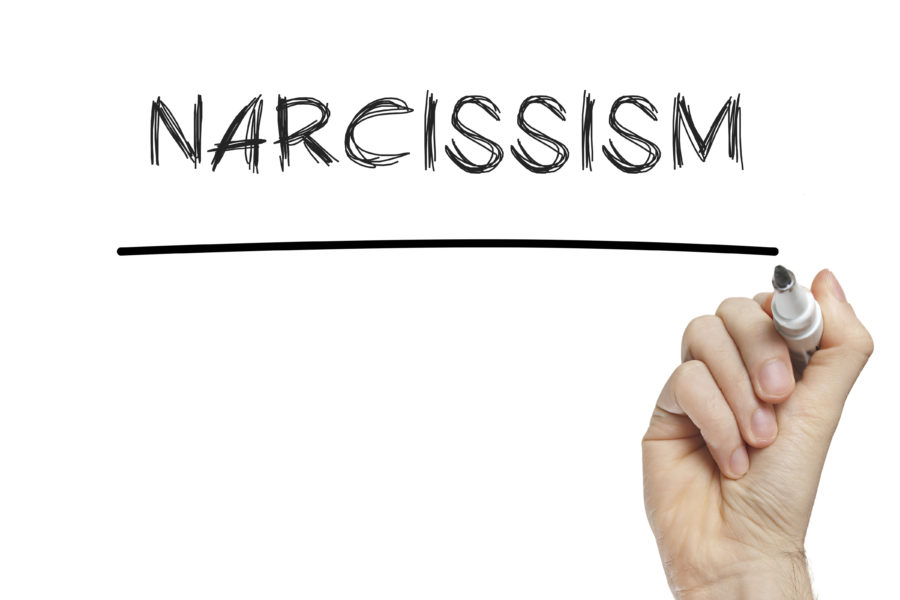Parents Follow These 3 Steps to Raise an Emotionally Intelligent Child

Parents, I have an important message for you. Of all the gifts you can give your children, emotional intelligence is probably the most valuable.
For decades, it was believed that IQ (Intelligence Quotient) was the primary factor in the ability of a child or adult to be successful in life. Now, thanks to lots of research, we know differently. Emotional Intelligence (also known as EQ) is more important to life satisfaction and success than IQ.
What Is Emotional Intelligence?
So what exactly is emotional intelligence? EQ expert Daniel Goleman, Ph.D. defines it as the ability to manage your own emotions, and also the emotions of others. If you have a high EQ, you are able to recognize your feelings when you have them and understand what they mean. You are also able to read what others are feeling and respond to them appropriately. This makes you well-equipped to manage complex interpersonal experiences.
The importance of EQ to life success has been established in study after study over the last 15 years. Research has shown that students who receive training in emotional intelligence at school try harder in classes, have better self-awareness and self-confidence, and manage their stress better in school.
Not only that, high EQ adults are more effective and more successful in leadership positions in both business settings and in the military.
Despite the incredible value of these skills, they are not in the minds of most parents as they raise their children. Parents want to teach their children how to behave, but they are probably not thinking about teaching them how to handle their emotions.
But this must change. Because fortunately, although a parent may have some difficulties helping his child understand complex math or chemistry concepts, all parents have the capacity to help their children develop emotional intelligence.
3 Steps To Raise Emotionally Intelligent Children
- Know that your child’s behavior is driven by his feelings. So the best way to teach her to behave is to help her learn how to manage her emotions.
- Set a goal to notice your child’s feelings. This step alone is enormously important.
- Never judge your child for having feelings. Accept his feeling, and then step in to help him name it, understand why he is having it, and manage it.
Example of The 3 Steps In Action
As Marcy stood chatting with another mom at their daughters’ soccer game, she noticed out of the corner of her eye that her 10-year-old daughter Halley was playing very aggressively. She was kicking the ball in a too-hard, undirected, and out-of-control fashion. As she watched, she saw Halley kick so hard that she missed the ball altogether, and then sit down on the field appearing to be in tears.
Macy and Halley
Marcy walked over to meet Halley on the sideline, where the coach sent her to cool down. “What’s going on Halley?” she asked her daughter. (This question tells Halley that her feelings are visible and important.)
“I hate soccer and I don’t want to play ever again,” Halley exclaimed with disgust in her voice.
“What’s making you so angry right now, Hon?” (Marcy has named the feeling for her daughter).
“Sophia and Katy were ganging up on me before practice, and they’re still doing it on the field. I hate those two,” Marcy explains, breaking into tears now.
“Aw, Halley, it always hurts so much to get ganged up on. No one likes that!” (Here Marcy has validated Halley’s feelings as understandable while also establishing that her painful experience happens to other people too.)
“You can handle this Halley. I know you’re hurt, but you can put that aside for now and finish the game. Then we’ll talk about what to do about Sophia and Katy on the way home, OK?” Putting her hand in the air for their trademark “pinky high-five,” Marcy says. “You’re strong and you got this.” Halley does the high-five with her mom and nods her head reluctantly. (Here Marcy has shown Halley that her feelings can be managed, and also how to do it.)
Years from now, at age 26, Halley will benefit from this exact experience. She will find herself feeling excluded at work, right before a meeting in which she has to present an important project. She will notice that she’s angry, and she will realize that her feelings matter. She will take a moment to identify the reason (she feels excluded).
Armed with this self-awareness of what she’s feeling and why she will now use the emotion management skills her mother taught her. She will say to herself, “I will think this through later. Right now I need to focus on this presentation.” With that, Halley will put a smile on her face and walk into the meeting looking composed and confident.
Marcy could have handled the soccer situation very differently. She might have walked over to Halley and said any of these things that any parent might say:
Pull it together, Kiddo, and get back out there.
This kind of behavior will get you kicked off the team!
What the heck is the problem?
You’re really annoying the coach!
If you’re not going to play the game right, we might as well go home.
None of these responses from a parent would be horrific or unreasonable, but all would ignore the importance of the child’s feelings (the definition of Childhood Emotional Neglect, or CEN). And all would miss an important opportunity to teach the child emotional intelligence.
If you grew up with Childhood Emotional Neglect yourself; if your parents didn’t teach you the EQ skills, then you may need to begin to learn them yourself.
But as a parent, you don’t have to be perfect at this. You only have to be willing to try. Please know that every single time you notice, respond to, and validate your child’s emotions, you are giving him the skills for a lifetime. Skills for confidence, connection, success, and motivation.
Possibly the greatest, most loving gift ever.
To learn how to emotionally connect with, and emotionally validate, a child of any age (small, teen or adult), see the book, Running on Empty No More: Transform Your Relationships With Your Partner, your Parents & Your Children. To learn more about Childhood Emotional Neglect, see my first book Running on Empty.
CEN can be invisible and unmemorable so it can be difficult to know if you have it. To find out, Take the CEN Questionnaire. It’s free.
9 Traps of Childhood Emotional Neglect During the Holidays

Childhood Emotional Neglect (CEN) permeates your everyday life. And there are some situations that can make CEN struggles even more present and challenging. One of them is the holiday season.
Notice the picture accompanying this post. I chose it for a special reason, and I want to start by apologizing for it. It is a perfect example of the pressure society puts on everyone throughout the holiday season. Commercials, ads, and images abound which show warm, happy families or beautiful people smiling with gifts.
Be joyous!
Be merry!
We’re a loving, close family!
The pictures call out to us day after day.
As a specialist in Childhood Emotional Neglect (CEN), I see how this affects many people. There is no time of year when folks are under this much pressure to feel. And even more challenging: you’re supposed to feel happy.
I have followed many emotionally neglected people through many holiday seasons, and I have seen how they often experience them. Under pressure to feel, the holidays can seem vaguely disappointing and burdensome for those who grew up emotionally neglected.
Childhood Emotional Neglect happens when your parents raise you in a way that does not pay enough attention to your emotions. Childhood Emotional Neglect leaves you with a particular set of struggles within yourself, and also with your family, throughout your adult life.
As you read the list of special challenges below, I encourage you to think about yourself and whether each one applies to you. Knowing and thinking about these challenges before they happen, or as they are happening, will help you minimize their effects on you this holiday season and beyond. First, let’s talk about the general effects of growing up with your emotions ignored.
Year-Round Struggles of the CEN Person
- You feel deeply that something is not right with you. But you have problems understanding what’s wrong or why.
- Your emotions are walled off, making it hard to experience the depth of feelings that other people have.
- Being out of touch with your feelings makes your relationships seem less rewarding, leaving you feeling, on some level, alone.
- You naturally put other people’s feelings and needs before your own.
- You are prone to getting angry at yourself and blaming yourself.
9 Traps of Childhood Emotional Neglect During the Holidays
- It makes your tendency to put others first even more exaggerated. When your parents failed to notice your feelings and emotional needs in your childhood, they give you the message that your feelings and needs are unimportant. This plays out powerfully during the holidays when you are prone to be too worried about making other people happy, and not paying enough attention to yourself.
- It can make you feel even more alone. With your feelings walled off, it is hard to connect with other people on a deep and meaningful emotional level. During the holiday season, you feel the expectations of the season. Portrayals of loving, warm families gathered around a fire, candles or a Christmas tree make you feel even more acutely what is missing in your own.
- You are vulnerable to missing out on what matters the most. Lacking full access to your own emotions has another effect. It can result in you going all the way through the holidays focusing on gifts, decorations, and pleasing others instead of the feeling part of the experience. This is also something that is very hard to realize in yourself because it’s difficult to know what you are missing.
- You are prone to the Holiday Trap: Looking forward to your family holiday event and then feeling disappointed and let down. Emotionally neglectful families often can appear perfectly normal from the outside. So you are vulnerable to expecting to feel happy and connected with your people, only to feel the lack of true emotional connection when you see them. This can lead to a roller-coaster experience: happy, excited expectations followed by a disappointing letdown.
- Being around your family continues your CEN. If your parents emotionally neglected you in your childhood, chances are high that they are still doing so. You will feel it when you see them for the holidays, and probably you will feel it even more when surrounded by the trappings of the holidays. This is one of the main causes of the disappointment described above.
- Once you’re aware of CEN it makes you see your parents and siblings differently. Seeing Emotional Neglect in your family changes how you view your birth family in some powerful ways. You begin to see that what seemed benign before is actually hurtful and harmful to you. This may make you feel angry or frustrated with them.
- The pressure to be joyous makes you feel lacking. CEN makes it hard to feel as intensely as others do, and it also makes you prone to feeling empty at times. For many with CEN, the pressure to feel joy makes it even more obvious that something is missing in your life. You may experience the emptiness even more.
- Your tendency toward self-anger and self-blame gets triggered. You may feel angry at yourself for overeating, not exercising enough, or for saying something you regret. There are many opportunities to do any or all of these things during the holidays.
- You are more likely to find yourself running on empty. Riding the roller-coaster of disappointment, surrounded by family but feeling alone, over-focused on others at the expense of yourself, and out of touch with the energy of your feelings, you are likely to power through the holidays by sheer force of will, all the while growing ever more drained day by day.
What To Do
Although the CEN ship has already sailed through your childhood, it is never too late to turn that ship around. But to do so, you must be proactive. Now that you see what’s been dragging down your holidays for years, you are in a good position to start making things different for yourself.
In the short term, now before the holidays, start treating yourself more as if you matter. Set aside time every single day to do something that nurtures you. Pay attention to the feelings you are having each day, and accept what you feel without judgment. Make sure you get enough rest, healthy food, and fresh air, and spend time with someone you enjoy.
And most importantly, start healing the roots of what’s wrong: your Childhood Emotional Neglect.
To get started, Take the CEN Test. It’s free. Then watch my Free CEN Breakthrough Video Series on YouTube!
You deserve a happy holiday season. My warmest holiday wishes to you!
A version of this article first appeared on psychcentral.com. It has been republished here with the permission of the author and Psychcentral.
Raised By Emotionally Neglectful Parents: 17 Signs to Look For

What kind of parents fail to notice their child’s feelings?
Since this type of parental failure (Childhood Emotional Neglect or CEN) causes significant harm to the child, people naturally assume that emotionally neglectful parents must also be abusive or mean in some way. And it is true that many are.
But one of the most surprising things about Childhood Emotional Neglect is that emotionally neglectful parents are usually not bad people or unloving parents. Many are indeed trying their best to raise their children well.
3 Categories of Emotionally Neglectful Parents
Type 1: Well-Meaning-But-Neglected-Themselves Parents (WMBNT)
- Permissive
- Workaholic
- Achievement/Perfection
There are a variety of different ways that well-meaning parents can accidentally neutralize their children’s emotions. They can fail to set enough limits or deliver enough consequences (Permissive), they can work long hours, inadvertently viewing material wealth as a form of parental love (Workaholic), or they can overemphasize their child’s accomplishment and success at the cost of his happiness (Achievement/Perfection).
What makes these parents qualify for Well-Meaning Category 1 status? They think that they are doing what’s best for their children. They are acting out of love, not out of self-interest. Most are simply raising their children the way they themselves were raised. They were raised by parents who were blind to their emotions, so they grew up with the same emotional blind spot that their own parents had. Blind to their children’s emotions, they pass the neglect down, completely unaware that they are doing so.
Children of WMBNT parents generally grow into adulthood with heavy doses of three things: all the symptoms of CEN, a great deal of confusion about where those symptoms came from, and a wagonload of self-blame and guilt. That’s because when, as an adult, you look back at your childhood for an explanation for your problems, you often see a benign-looking one. Everything you can remember may seem absolutely normal and fine. You remember what your well-meaning parents gave you, but you cannot recall what your parents failed to give you.
“It must be me. I’m flawed,” you decide. You blame yourself for what is not right in your adult life. You feel guilty for the seemingly irrational anger that you sometimes have at your well-meaning parents. You also struggle with a lack of emotion skills, unless you have taught them to yourself throughout your life since you had no opportunity to learn them in childhood.
6 Signs To Look For
- You love your parents and are surprised by the inexplicable anger you sometimes have toward them.
- You feel confused about your feelings about your parents.
- You feel guilty for being angry at them.
- Being with your parents is boring.
- Your parents don’t see or know the real you, as you are today.
- You know that your parents love you, but you don’t necessarily feel it.
Type 2: Struggling Parents
- Caring for a Special Needs Family Member
- Bereaved, Divorced, or Widowed
- Child as Parent
- Depressed
Struggling parents emotionally neglect their child because they are so taken up with coping that there is little time, attention, or energy left over to notice what their child is feeling or struggling with. Whether bereaved, hurting, depressed or ill, these parents would likely parent much more attentively if only they had the bandwidth to do so.
But these parents couldn’t, so they didn’t. They didn’t notice your feelings enough, and they didn’t respond to your feelings enough. Although the reasons for their failure are actually irrelevant, you have not yet realized this yet. You look back and see a struggling parent who loved you and tried hard, and you find it impossible to hold them accountable.
Children of struggling parents often grow up to be self-sufficient to the extreme and to blame themselves for their adult struggles.
4 Signs To Look For
- You have great empathy toward your parents, and a strong wish to help or take care of them.
- You are grateful for all that your parents have done for you, and can’t understand why you sometimes feel inexplicable anger toward them.
- You have an excessive focus on taking care of other people’s needs, often to your own detriment.
- Your parents are not harsh or emotionally injurious toward you.
Type 3: Self-Involved Parents
- Narcissistic
- Authoritarian
- Addicted
- Sociopathic
This category stands out from the other two for two important reasons. The first: self-involved parents are not necessarily motivated by what is best for their child. They are, instead, motivated to gain something for themselves. The second is that many parents in this category can be quite harsh in ways that do damage to the child on top of the Emotional Neglect.
The narcissistic parent wants his child to help him feel special. The authoritarian parent wants respect, at all costs. The addicted parent may not be selfish at heart, but due to their addiction, is driven by a need for their substance of choice. The sociopathic parent wants only two things: power and control.
Not surprisingly, Category 3 is the most difficult one for most children to see or accept. No one wants to believe that his parents were, and are, out for themselves.
Being raised by Category 3 parents is only easier than the other two categories in one way: typically, you can see that something was (and is) wrong with your parents. You can remember their various mistreatments or harsh or controlling acts so you may be more understanding of the reasons you have problems in your adult life. You may be less prone to blame yourself.
7 Signs To Look For
- You often feel anxious before seeing your parents.
- You often find yourself hurt when you’re with your parents.
- It’s not unusual for you to get physically sick right before, during, or after seeing your parents.
- You have significant anger at your parents.
- Your relationship with them feels false, or fake.
- It’s hard to predict whether your parents will behave in a loving or rejecting way toward you from one moment to the next.
- Sometimes your parents seem to be playing games with you or manipulating you, or maybe even trying to purposely hurt you.
Helpful Resources
Childhood Emotional Neglect (CEN) can be subtle and invisible when it happens so it can be hard to know if you have it. To find out, Take The Emotional Neglect Questionnaire. It’s free.
Knowing the type of emotionally neglectful parents you have is tremendously helpful. It helps you improve your relationship with your parents, as well as protect yourself emotionally. Learn much more in my book Running On Empty No More: Transform Your Relationships.
To learn more about Childhood Emotional Neglect, see my first book Running on Empty.
This post is an update of an article first published on PsychCentral.
The Sad Connection Between Childhood Emotional Neglect and Narcissism

Believe it or not, there is a sad connection between Childhood Emotional Neglect (CEN) and narcissism. If you know very much about either, you probably find that difficult to believe.
After all, people who grow up with Childhood Emotional Neglect have a strong tendency to view themselves and their own needs as unimportant and secondary to others whereas, in contrast, those with narcissism are known for putting themselves and their own needs first.
How, then, could these two opposite personality styles be related? Actually, in quite a few very important ways.
But before we talk about how these two are linked, let’s first define them both.
Childhood Emotional Neglect
Childhood Emotional Neglect happens when your parents fail to respond enough to your emotions and emotional needs as they raise you. This sends you, a child, a subtle message, “Your feelings don’t matter.” Children who receive this message automatically push their feelings down, basically walling them off, so that they will not be troubled by them.
This may allow you to cope in your childhood home, but in adulthood, having your feelings blocked causes all kinds of problems in your life. Having your feelings walled off is basically a recipe for feeling disconnected and unfulfilled in your adult life. It makes emotions puzzling, keeps your relationships lacking, and makes you feel less important, less valuable, and less valid than other people.
Narcissistic Personality
Narcissism exists on a continuum, all the way from having some narcissistic traits all the way to the other end, the more extreme narcissistic personality disorder which is an official clinical diagnosis.
A person with narcissistic traits is likely seen as self-centered and somewhat grandiose. For example, they may tout their own accomplishments often, be willing to step on others to get to the top, and thrive in the limelight.
A person with narcissistic personality disorder takes all of those a few steps further. But some other likely qualities of the personality disorder include a desperate need to be admired, inability to feel empathy for others, arrogance, plus a willingness to exploit others to achieve their own needs for power and control.
5 Sad Connections Between Childhood Emotional Neglect and Narcissism
- One of the causes of CEN is being raised by a narcissistic parent. Narcissistic parents are a major source of Childhood Emotional Neglect. Narcissistic parents are unable to see the true nature of their children or respond to them emotionally. They are taken up trying to get their own needs met, and are not capable of giving emotionally to anyone, and that includes their child. So children of narcissistic parents often have their emotional needs ignored or discouraged, the very root cause of CEN.
- Most narcissists grew up with an extreme variety of Emotional Neglect. The extreme type of CEN that contributes to narcissism happens when your parents not only ignore your emotions, they actively squelch your feelings and your true self. Narcissism may be partly determined by genetics, but to become a narcissist, you generally must grow up with a complex mix of being emotionally squelched (CEN) in some ways, and overly indulged or excessively praised in some kind of superficial or inaccurate way. CEN is at the core of every narcissist.
- People with pure Childhood Emotional Neglect are drawn to narcissists and vice-versa. When you have CEN, you tend to take up little space. Deep down you feel unimportant and invalid, so you don’t ask for much, and you don’t allow yourself to want or need much. On the other hand, those with narcissism are the opposite. Narcissists put their own feelings and needs first, and feel most comfortable when taking up lots of space. This predisposes people with CEN and narcissists to feel comfortable with each other. They often fall in love with each other, but it seldom works out well.
- Many Emotionally Neglected people have a narcissistic sibling. This is because when the parents are emotionally neglectful, the various levels of sensitivity of the children combine with the differing ways the emotional neglect comes across to each child. One may grow up with the struggles of pure CEN and another sibling may end up with narcissism.
- The hidden inner cores of narcissistic people and those with Childhood Emotional Neglect are very much the same. Since CEN is a contributing part of the development of narcissism, this is not surprising. The shared inner core of these two very different styles is a shared inner feeling of being empty, alone, and insignificant. This is how adults end up feeling when they grow up with the most deeply personal, biological expression of who they are (their feelings) squelched or ignored.
Yes, There is a Sad Connection Between Childhood Emotional Neglect and Narcissism
If you were to meet a CEN person and a narcissistic person on the same day, you would see how truly opposite they are. Yet these two disorders, though so very different, in a strange and paradoxical way, cause and perpetuate each other.
Both narcissism and Childhood Emotional Neglect could be wiped off the planet if all of the parents in the world did one crucial thing: noticed, validated, and responded to their children’s emotional needs.
Then the sad connection between CEN and Narcissism would not matter at all. Because every child would know, deep down, and without a doubt, that he matters.
To learn more about Childhood Emotional Neglect, see my first book Running on Empty.
How To Overcome Abandonment Issues From Childhood

Few things have the power to hold you back in your adult life as much as abandonment. Legions of people are wondering how to overcome abandonment issues from childhood.
Sadly, there are many different ways that parents can fail their children. Thanks to research and awareness, there are many resources available to people who grew up with any form of abuse from their parents. But there are two other types of parental failure that are far less noticed or discussed: parental abandonment and Childhood Emotional Neglect (CEN).
Childhood Emotional Neglect (CEN)
Children are born literally “pre-wired” with some very specific emotional needs. Thanks to loads of scientific research, we now know, without a doubt, that in order to grow and thrive as an adult, children must feel loved and emotionally attached to their parents.
Childrens’ emotional needs are, in fact, so crucial that even well-meaning, physically present parents can inadvertently harm their children by not responding enough to their children’s emotions. This subtle parental failure happens far and wide, and I have given it the name Childhood Emotional Neglect, or CEN.
Though CEN happens under the radar in most emotionally neglectful homes, it nevertheless leaves lasting effects upon the child: disconnection, lack of fulfillment, and feelings of being empty and alone, among others.
If physically present, well-meaning parents can fail their children in such a subtle way that harms them, you can imagine the powerful impact of parental abandonment.
Parental Abandonment
Parents leave their children in many different ways, and for many different reasons. Whether your parent left you because of divorce, death, or choice, the reason matters far less than the fact that he or she left you.
It is very difficult for a child’s brain to absorb the enormity of abandonment. Children often suffer problems with anger or grief after the loss of a parent. Most children have difficulty believing that it is permanent, even if their parent has passed away. But if your parent walked away by choice, you will also likely struggle with your very natural question of, “Why?”
The 3 Main Issues Of The Abandoned Child
- Trusting others: When your parent abandons you, he or she is violating your most basic human need, which is to have parents who value and enjoy you. If the one who is meant to love and care for you the most in this world leaves you, it becomes very difficult to believe that anyone and everyone who becomes important to you will not do the same. You may end up living your life constantly on-guard for the possibility of being abandoned again. It’s hard to trust that your partner, friend or loved one has your best interests in mind. This holds you back from forming rich, deep, trusting relationships.
- Guilt and shame: All abandoned children are deeply mystified about why their parents left them. Many struggle with the fact that there is no good explanation because, let’s face it, apart from death there is no good reason for a parent to leave a child. In the absence of a logical explanation, the child naturally tends to blame herself. This sets up a pattern of feeling deeply responsible for her parent’s choice to leave her. The abandoned child often grows up to struggle with guilt and shame.
- Self-worth: “How could my own parent leave me?” the abandoned child wonders. Being left by the one who brought you into this world naturally makes you wonder what is wrong with you. The abandoned child is set up to never feel good enough. Deeply, painfully, he feels unworthy of true love and commitment.
Many thousands of children grow up with parents who are physically present, yet emotionally absent — Childhood Emotional Neglect. These children grow up to feel less important than others, and deeply alone.
Many thousands more children experience the deep trauma of a parent physically abandoning them. If you had this experience as a child, you have probably grown up to struggle with trust, shame, and low self-worth.
Even if you are physically abandoned, if you have one parent who remains present and is emotionally attuned to you, this can greatly soften the impact of the other parent’s abandonment.
Emotional attunement from a parent is the balm that soothes all childhood hurts, and the antidote that prevents depression, anxiety, and low self-worth. If you grew up in a family that offered a shortage of this balm, you may be struggling to this day.
How To Overcome Abandonment Issues From Childhood
Whether you grew up with Childhood Emotional Neglect, abandonment, or a combination of the two, it’s not too late for you to repair those childhood hurts. Now, as an adult, you can make up for what you didn’t get in childhood.
By beginning to tune in to yourself to pay attention to your feelings, by making a concerted effort to take care of your own needs, and by learning emotion management skills, you can begin the process of accepting your own true value as a human being.
If your parents failed you emotionally or abandoned you, you can become your own present, loving and attuned parent now.
It’s never too late to begin to accept that you matter.
To learn much more about the emotional needs of children, the effects of having emotionally or physically absent parents and how you can heal yourself, see Running On Empty or Running On Empty No More: Transform Your Relationships.
To find out if you grew up with Childhood Emotional Neglect Take the Emotional Neglect Test. It’s free!
6 Sad Reasons Why A Family Creates A Black Sheep

“I’m the black sheep of my family,”
said the young man who sat before me in my therapy office. I tried to imagine this adorable, sad young man being the “black sheep” of anything. I couldn’t.
Generally considered the outcast of the family, the black sheep is typically assumed to be an oddball. Furthermore, the rest of the family believes that the black sheep brought this upon himself.
It is true that sometimes the black sheep is indeed “odd” by anyone’s standards (sometimes the result of a hidden mental illness). Or she may be a sociopath who violates the family’s boundaries and care, so that the family has to exclude her to rightfully protect themselves.
But surprisingly, very seldom is either of these scenarios actually the case. Many, many black sheep are lovable folks with much to offer their families and the world. In fact, they are often the best and brightest. They may be the most creative of the family, or the one with the most powerful emotions.
In truth, the world is full of black sheep. Think hard. Does your family have one? This question is not as easy to answer as it may seem, for many black sheep are not physically excluded from the family. For most, it’s much more subtle. The exclusion is emotional.
Three Signs That Your Family Has a Black Sheep: Continue reading
Love and Wealth are Not Enough

What’s the most important ingredient for a happy life?
Philosophers, clergy, psychologists and researchers of all kinds have offered opinions on this question over the last five decades. Some say wealth, some say religion. Still others say family is the most important thing.
But one factor emerges over and over in study after study as a primary ingredient which must be present in childhood to produce a happy, healthy and well-adjusted adult. That factor is emotional attachment, warmth and care. In a word, love.
This factor was recently studied very specifically by Harvard researchers (Vaillant, 2012) who wanted to compare the effects of childhood financial wealth with childhood warmth. By following over 200 men (yes, only men) over an extended period of 70+ years, they were able to identify clear patterns. They saw that childhood financial wealth has little to do with adult success, satisfaction and adjustment. And that parental warmth and care throughout childhood is a much more powerful contributor.
Some may wonder, “What’s the big deal? Don’t virtually all parents automatically love their children?”
In my years as a psychologist, I have seen for myself that money is not enough to raise a healthy child. But I’ve also seen that love is not enough. At least not the generic, “I love you because you’re my child” kind of love.Continue reading
Stressful Family? 10 Mantras to Get You Through the Holidays

Is your family happy and supportive? Are your holiday family gatherings warm, loving and festive? If so, that is wonderful. And you can stop reading this article now.
Is your family complicated? Do you often feel hurt, pained, disappointed, damaged, or let down when your family is together? If so, this article is for you. Never fear, help is here. (For more about painful family dynamics, take a look at last week’s article, 4 Subtle Family Dynamics That Can Ruin Your Holidays.)
No, of course we can’t fix your family issues before this year’s holiday gathering. But we can give you some new tools to get you through it. One of the most powerful tools to cope with a painful family is a mantra. It’s a sentence that you repeat inside your head over and over throughout the day. You can call upon it whenever you need to feel calmer and stronger. It serves to remind you what’s really going on in your family. It focuses your attention, and it provides you with the strength and resolve to get you through the day.
While going through the list below, choose the one that feels most right to you. It should be one that you can feel in your gut. It should make you feel a little stronger as you say it.
Here are Ten Mantras to choose from:Continue reading
When the Narcissist Becomes Dangerous

Recently at a dinner party, talk turned to the current news story about Bill Cosby. As the only psychologist at the table, everyone looked at me as one person asked with intense curiosity, “How could anyone victimize women all those years, and still live with himself? How could you sleep at night?”
Since I don’t know Bill Cosby, I can’t speak for him; nor do I know if he is guilty of the accusations against him or not. But generally, in an actual situation like this, there is an answer to the question. The answer is one word: narcissism.
In many ways, it seems like it would be fun to be narcissistic. Wouldn’t it be great to go through life feeling superior to other people, and with unwavering self-confidence? Yes!
But as we all know, there is a dark side to narcissism. That unwavering self-confidence is as brittle as an eggshell. Narcissists don’t move back and forth on a continuum of self-esteem as the rest of us do. Instead, they run on full-tilt until something taps that protective shell of self-importance hard enough. Then, they fall into a million pieces. Under that fragile, brittle cover lies a hidden pool of insecurity and pain. Deep down, the narcissist’s deepest and most powerful fear is that he is a nothing.Continue reading
4 Subtle Family Dynamics That Can Ruin Your Holidays

Do you look forward to seeing your family at the holidays, but then often come away feeling vaguely disappointed, confused, angry or guilty?
If this is true of you, then you need answers to what is truly going on in your family. And you need them quickly since The Holidays are here. Is it possible to make this year’s family gathering less disappointing?
Yes.
As a psychologist I have found that as adults, family dynamics have the power to make or break our holidays. And that family dynamics have the most power when they run under the surface, unseen and unknown by the family members themselves.
The bad news: it is often very difficult to change your family dynamics. The good news: it is usually not necessary to change them. Being able to see what is really going on between family members is enough to make you less vulnerable.
Here are Four Subtle Family Dynamics that can ruin your holidays:Continue reading
